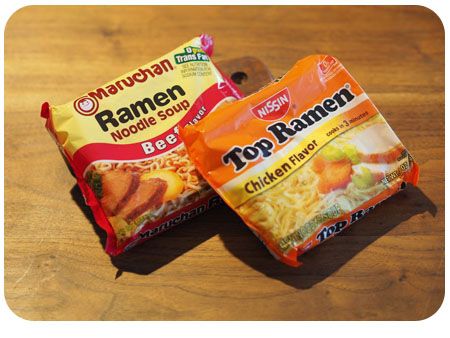Four Simple Words That Can Boost Your Wealth and Your Happiness
If you want a special experience to remain special, you'd best not make a habit of it.
“Make it a treat.” These four simple, yet powerful words, just might be the key to both financial success and continual happiness.
The phrase was introduced to me by the smart, sexy, and sassy comedian, Sarah Silverman. How’s that for alliteration?
She discusses the concept in her autobiography as applicable to a particular act that may or may not occur between consenting adults, and to using a “medication” that is only legal in a few states. She goes on to explain that “make it a treat” should be applied to all sorts of things we might find enjoyable, like dressing to the nines, or eating chocolate.
“Make it a treat” is a mantra she lives by, which in my mind pretty much qualifies her as a personal finance guru. How so?
If you want a special experience to remain special, you’d best not make a habit of it. If you let it become routine, you’ve transformed what was once a real treat into something ordinary.
Enjoy fine dining? Make it a treat.
Like drinking fancy wine, scotch, or ale? Make it a treat.
Business class upgrade? Make it a treat.
That thing you do that makes her feel special (like roses on a random Tuesday, a surprise date night, or washing the dishes [wink wink])? Make it a treat.
If you’re like me, you probably experienced some lifestyle upgrades when you started making a decent paycheck. Some of those upgrades make a lot of sense. A newer car might be safer, more reliable and fuel efficient. A larger home might be needed when you start a family. Paying a small premium to support local merchants, farmers, brewers and vintners is good citizenship. Buying fresh fruits and vegetables, fish and lean meats may cost more than Cheetos and processed frozen meals, but they will keep you healthier.
Once you’ve established a comfortable, healthy lifestyle, paid off some debt, and started investing for retirement, you may find that you’ve got extra money for the first time in your life. You’ve worked very hard to get to this point, and you deserve to reward yourself. But not every day.
As a kid, our parents told us what we could and couldn’t have. Sodas were limited, as were ice cream, cookies, and favorite meals, like steak fondue. When we got to have them, it was exciting. That root beer tasted really good, and if it happened to come with a scoop of vanilla, it was incredible!

A little root beer float
Sadly, the prospect of a root beer float doesn’t float my boat like it once did. I enjoy them just fine, but I can have one whenever I want. I may have overdone it in college when I first got to do my own grocery shopping. A couple two-liters of A&W, one pail of ice cream, and a bag or two of Cheetos. The first float was great! The second one quite good. On the fourth day, I’m forcing them on my roommates. Eventually, I’m dumping the last liter of flat root beer. I took a special treat and made it unspecial.
It should be pretty clear that adopting a “make it a treat” attitude will be easier on your wallet. Doing expensive things occasionally will cost less than doing them often. The connection with happiness may be less clear. Wouldn’t you be happier if you had dinner at Morton’s twice a month instead of twice a year?
Probably not.
It turns out that our clever minds adapt fairly readily to whatever baseline we set for them. When we dip below the baseline, we become a bit uneasy or unhappy. When an experience exceeds the baseline, we find pleasure.
For example, if you are used to staying at a 3-star Comfort Inn, you might feel kinda icky at the 2-star Motel 6, but the 4-Star Westin will be super nice.
If you normally stay at the Motel 6, the Comfort Inn will be very, well… comfortable, and the Westin simply incredible.
If the Westin is your standard, it takes a Ritz-Carlton or Four Seasons to impress you, and you’ll be downright nauseous at the Motel 6.
I could run a similar scenario using restaurants, automobiles, cruise lines, or theme parks (can you tell I just got back from vacation?). The bottom line is that you choose your set point. Positive and negative experiences are realized when you depart from your chosen set point.
Studies have backed the “make it a treat” theory. One such study from 1978 compared lottery winners and newly paraplegic accident victims. As you might expect, the lottery winners experienced a big surge in happiness; the paralytics suffered a serious decline. In time, both the positive and negative effects of the profound change diminished. After a short while, both groups had returned to a similar baseline happiness.
The term for our tendency to adapt to a situation and reset to a new baseline is called hedonic adaptation. Science and experience tell us that repeatedly doing something that makes us happy once (and may cost a fair amount of money) will not continue to bring us the same joy it did the first time. We become used to it, and may seek bigger and better experiences or objects to experience that same joy. Desensitization to the finer things makes them seem pedestrian after a while.

Ramen. Still Good.
McDonalds was a treat when you were used to ramen. Applebee’s was a treat when you were used to McDonalds. Morton’s was a treat when you were used to Applebee’s. If you’ve gotten used to Morton’s, you’re making reservations at some seriously high-dollar joints to get your dopamine release.
This sort of observation was published as far back as 1621. Robert Burton’s Anatomy of a Melancholy quotes St. Augustine, “A true saying it is, Desire hath no rest, is infinite in itself, endless, and as one calls it, a perpetual rack, or horse-mill.”
Take Sarah’s and St. Augustine’s advice to heart, and your pocketbook will thank you.
Keep a special thing special. Make it a treat.